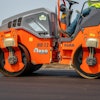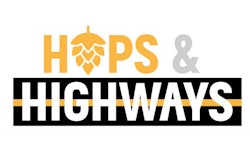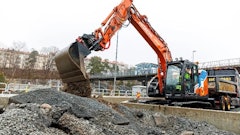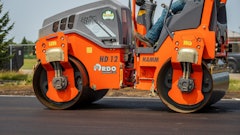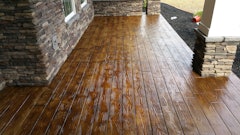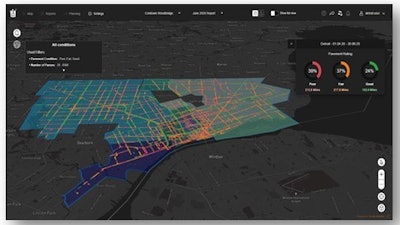
Tactile Mobility, the City of Detroit and a major Detroit-based automaker announced that they have joined forces to conduct a proof of concept that aims to solve one of the Detroit’s main challenges: improving pavement conditions and optimizing maintenance. Organized and supported by a PlanetM grant, the three parties are collaborating to demonstrate Tactile Mobility’s in-vehicle software and insights’ ability to provide an objective, "up-to-date" and accurate road pavement rating mapping solution.
“We are thrilled to be able to support this unique proof of concept which will help improve our roads while also making them safer,” said Charlie Tyson, MEDC Mobility Technology Activations Manager, in coordination with the Office of Future Mobility and Electrification. “The collaboration between Tactile Mobility, the City of Detroit and the Detroit-based Automaker is a terrific example of how we’re leveraging public and private partnerships to drive mobility solutions here in Michigan.”
This solution is improving the quality of road condition data collection and providing automated analysis results, which will provide better insights about road safety and allow road authorities, cities and municipalities to prioritize preventative maintenance planning and ad-hoc corrective maintenance needs.
Tactile Mobility is a global provider of software-based tactile sensing and data solutions. The solutions are comprised of an in-vehicle module residing on one of the vehicle’s computers and the cloud-based system. This system generates insights measuring vehicle-road dynamics with an emphasis on characterizing road conditions such as grades, banks, curvatures, slipperiness, and the locations of distresses. The software serves as a mapping layer that offers a near real-time view of the road network to support maintenance, live hazard detection and post-accident analysis.
The Detroit-based automaker is currently looking to advance its technology and offerings in cities and municipalities. The use of Tactile Mobility’s data collection and crowdsourcing technology in 20 of the automaker’s series vehicles, owned by the City of Detroit Department of Public Works, provides an ongoing, 24/7 objective map of Detroit’s road conditions. The vehicles act like a probe, continuously monitoring and reporting the quality of road segments to Detroit leaders, administrators and public works officials.
The City of Detroit manages and maintains thousands of miles of roadway within its municipal boundaries and is working toward adopting innovative solutions that identify roadway surface conditions as timely and effectively as possible. “With the continued development of connected vehicles and infrastructure, this project creates an opportunity for us to be more technologically advanced and data-driven in how we maintain and invest in our roads and overall infrastructure,” said Sam Krassenstein, Transportation and Infrastructure Advisor of the City of Detroit.
The purpose of this one-year proof of concept, which will soon come to a close, was to demonstrate that Detroit’s road conditions can be measured continuously and accurately using Tactile Mobility’s embedded software in the Detroit-based automaker’s vehicles. The main objective was to provide a reliable and updated pavement rating score on a 10-grade scale for each road segment, where each grade implies corresponding maintenance activities.
“The results of this POC have proven to be successful,” said Yagil Tzur, Vice President of Product at Tactile Mobility. “The high correlation between Tactile Mobility’s pavement rating and current standards exceeded the City of Detroit’s needs and satisfaction. Equipped with tactile technology, Detroit and other cities alike can detect areas of slipperiness such as ice, water or additional weather related elements in real-time and transmit the information to control centers that will alert drivers before reaching such suspected areas. This is the first step towards a full suite of solutions that will provide insights about maintenance and road safety.”



